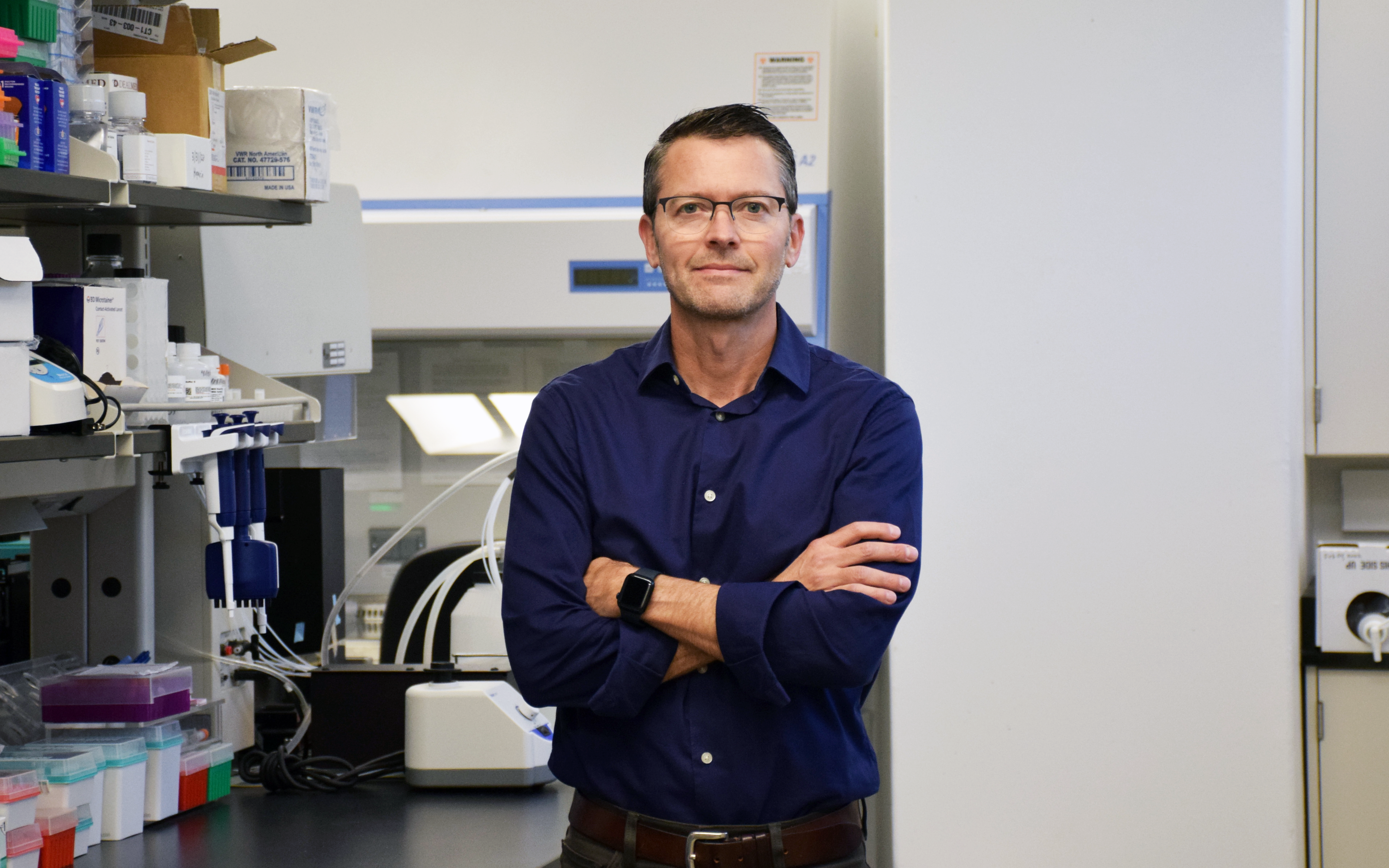Three Assumptions About Inflammation That May Be Wrong
IPR anthropologist examines how inflammation affects aging and health
Get all our news
If we can generate knowledge into the experiences and contexts that shape how our bodies regulate inflammation, hopefully we can leverage that knowledge to break the links among inflammation, aging, and disease.”
Thomas McDade
IPR biological anthropologist

Inflammation protects against infections and aids in healing. But if left uncontrolled, it can lead to heart disease and other degenerative diseases of aging and is often considered a "normal" part of getting older. But should it be?
In a new article in the Proceedings of the National Academy of Sciences, IPR biological anthropologist Thomas McDade addresses three assumptions about inflammation and its association with aging and health.
Assumption #1: Everything we need to know about inflammation can be learned from research in affluent industrialized settings.
Our understanding of the human body is largely based on White men living in the U.S., one of the world’s richest nations, according to McDade.
But people in the U.S. and other wealthy countries have unprecedented access to high-calorie foods, partake in lower amounts of physical activity, and spend their lives in cleaner environments that have reduced microbe intensity and diversity—all of which can contribute to high inflammation. McDade finds that people in countries without these conditions fare better when it comes to inflammation.
In a study conducted in the Philippines—part of the ongoing Cebu Longitudinal Health and Nutrition Survey—McDade, IPR biological anthropologist Christopher Kuzawa, and their colleagues find that despite high levels of infectious diseases, C-reactive protein (CRP) levels, used to measure inflammation, were actually lower in the Philippines when compared to the U.S.
“Most people assume that inflammation is bad for our health, and that levels of inflammation increase as we get older. This is largely true in the U.S. and other rich countries,” McDade said. “But studies in other parts of the world show us that chronic inflammation is not necessarily a ‘normal’ part of aging, and that it doesn’t always contribute to cardiovascular disease and other diseases of aging.”
Assumption #2: Aging begins at 50.
“Inflammaging” was coined to describe the concept that chronic and uncontrolled inflammation comes from—and contributes to—declines in the human body as people age. But studies supporting this claim, McDade finds, might not give an accurate look at why inflammation increases at this point of the life course.
McDade highlights evidence of an association between inflammation in adulthood and environments experienced early in childhood during which children go through a series of highly sensitive and critical developmental stages. In prior research, McDade has found that nutrition during pregnancy and infancy, such as how much a mother breastfeeds and what she eats, can impact CRP in adulthood. More inflammation in adulthood is also associated with childhood trauma, such as neglect or abuse.
A lack of exposure to diverse bacteria, viruses, and other microbes during childhood is another factor in inflammation and is linked to asthma and allergies. However, McDade says the implications may extend even further: Inflammatory and degenerative chronic diseases, and even aging itself, may be staved off by early exposure to diverse microbes.
By assuming aging begins at 50 and by not looking at the entirety of human development and the health impacts of our environments, McDade suggests that we might be missing opportunities to disrupt the cycles of inflammation, aging, and disease before they can take shape.
Assumption #3: Inflammation is synonymous with pathology.
Inflammation is thought to be dangerous—and in excess and when unregulated it can be, McDade says—but it might not have to be that way. Inflammation is often considered a pathway to other diseases and that can undermine the good that comes with it: Without inflammation we cannot survive infections, grow our bodies and brains, or reproduce.
For example, McDade points to a study of the Tsimane, an indigenous group of lowland Bolivia with an average life expectancy of 43 years, that found remarkably high levels of inflammation and “high risk” CRP across all age groups. The researchers theorized that based on the association between high CRP levels and future heart attacks and strokes, early heart disease is a factor in the higher adult mortality of the Tsimane.
But in a follow up study a year later, the researchers challenged their original hypothesis. According to McDade, the original theory relied on the assumption that the findings from inflammation research in Western countries are universal, and we could “draw a straight line between high CRP and chronic degenerative diseases even in radically different ecological and epidemiological contexts.”
The follow-up study found that inflammation and infection do not promote aging of the arteries and heart disease risk factors among the Tsimane, possibly due to their lean diet of home-grown food and active lifestyle. The findings underscore McDade’s point that high inflammation levels may not cause disease, but rather other underlying factors are to blame.
A growing number of studies from lower income nations also break the link between inflammation, aging, and disease: Chronic inflammation levels are relatively low and do not increase with age in West Africa, Malawi, Siberia, Ecuador, the Philippines, and Indonesia.
While the common assumptions guiding current research have generated important insights, they may be holding us back as seen in results from studies in lowland Bolivia, the Philippines, Ecuador, and others. These findings bolster McDade’s idea that to fully understand inflammation, we need to expand our worldview.
“If we really want to understand inflammation and how it matters to health, we need to study it in everyday people around the world,” McDade said. “If we can generate knowledge into the experiences and contexts that shape how our bodies regulate inflammation, hopefully we can leverage that knowledge to break the links among inflammation, aging, and disease.”
Read the entire article here.
Thomas McDade is the Carlos Montezuma Professor of Anthropology and an IPR fellow.
Published: December 14, 2023.


